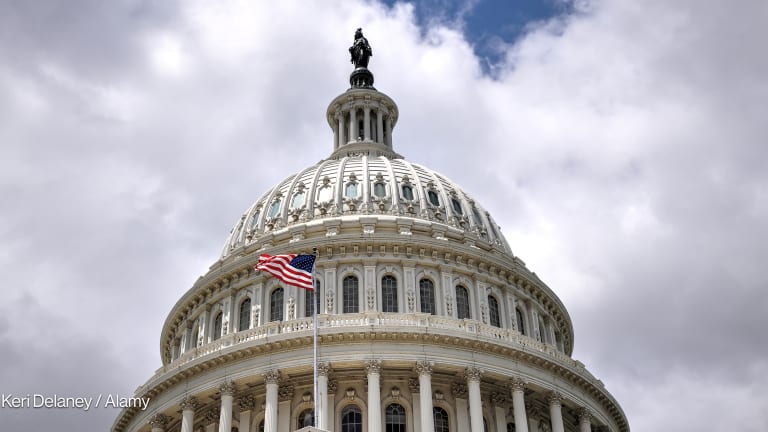
Anxiety could be sensed among aid implementers meeting Thursday at the U.S. Agency for International Development headquarters in Washington, D.C. Just like most people working in the area, they worry about what lies ahead in the wake of the sequestration.
The sequestration would mean a 5 percent cut to many U.S. government departments, including those handling foreign assistance. The impact, though, won’t be felt until perhaps next year, participants said at the Washington event, and eyes are on the Senate and House of Representatives to come up with a grand bargain on spending that would soften the blow or reverse some of the looming cuts.
Sam Worthington, president and CEO at InterAction, the largest alliance of U.S.-based development nongovernmental organizations, noted at the event that if the cut is implemented in a nondiscretionary manner, gains made by USAID would be endangered.
“USAID has improved its grant-making and procurement procedures in the last few years in a large part due to hiring more skilled staff,” he told Devex on the sidelines of the USAID Advisory Committee on Voluntary Foreign Aid’s annual public meeting. “These cuts would definitely make that harder to do in the future.”
If the funding decrease pushes through, he noted that fewer USAID programs will be undertaken in the future.
“However if the Senate bill prevails, USAID and other development agencies will be cushioned to a large extent,” added Worthington, who also serves on ACVFA.
Worthington was referring to a continuing resolution proposal by the U.S. Senate. The House has proposed a different version to keep the government operating through the end of fiscal year 2013 once the current one expires March 27. That House proposal upholds the sequestration order by U.S. President Barack Obama.
Although the Senate bill proposes a level of funding for the international affairs budget that is similar to the House’s — $41.5 billion for the international affairs base budget plus $10.6 billion for overseas contingency operations, which is approximately $100 million below the current funding level and $2.8 billion below that of fiscal 2012 — it is by far friendlier to humanitarian aspects of the international affairs budget as compared to the latter, aid officials agree. The Senate version of the continuing resolution adjusts current spending levels more significantly than the House bill and provides greater flexibility in how spending is distributed. In particular, the Senate bill:
Increases global health funding to $8.47 billion, including $2.75 billion for USAID health programs and $1.65 billion to the Global Fund to Fight AIDS, Tuberculosis and Malaria, but reduces President’s Emergency Plan for AIDS Relief funding to $4.07 billion.
Increases funding for humanitarian programs within the overseas contingency operations for international disaster assistance as well as migration and refugee assistance accounts, totaling $4.2 billion for the two accounts.
Increases contributions to multilateral development banks. The bill funds multilateral assistance at $2.82 billion, nearly $200 million above the House’s. Of particular note are increases for the Global Environment Facility, International Development Association, and Inter-American Development Bank.
Increases contributions to international peacekeeping activities to $1.9 billion.
Authorizes the State Department to transfer money between accounts so as to provide it with greater flexibility.
A senior official at USAID who requested anonymity provided several possible scenarios on how the sequestration may affect USAID operations.
The official said the cuts are unlikely to lead to furloughs but a hiring freeze is already virtually in place, despite the immense need for additional skilled staff at the agency in Washington and its overseas missions. He also pointed out that even though current programs in this financial year were not likely to be reviewed, some current programs running into the next financial year would definitely undergo the process. He added that in some cases contractual agreements allow USAID to review ongoing programs.
Some USAID missions may also suffer. One option on the table: rerouting some resources to other missions with higher needs, a scenario that USAID Administrator Rajiv Shah has noted as a possibility.
“Poorer countries are likely to get priority, trade-offs would include repositioning staff from richer countries to poorer ones,” the official said.
Discretion by individual missions abroad as to how to implement the cuts would also be considered.
Read more development aid news online, and subscribe to The Development Newswire to receive top international development headlines from the world’s leading donors, news sources and opinion leaders — emailed to you FREE every business day.








